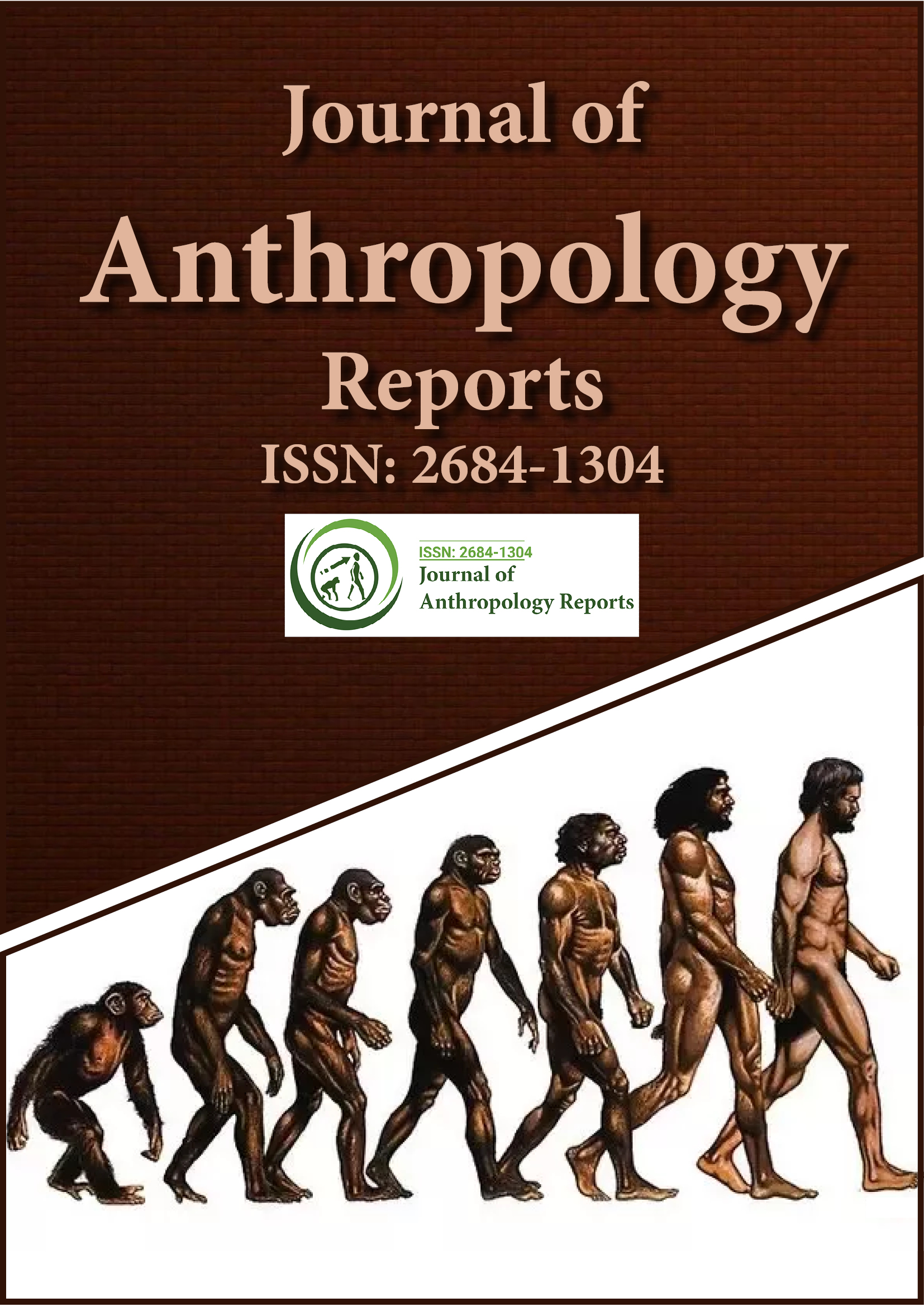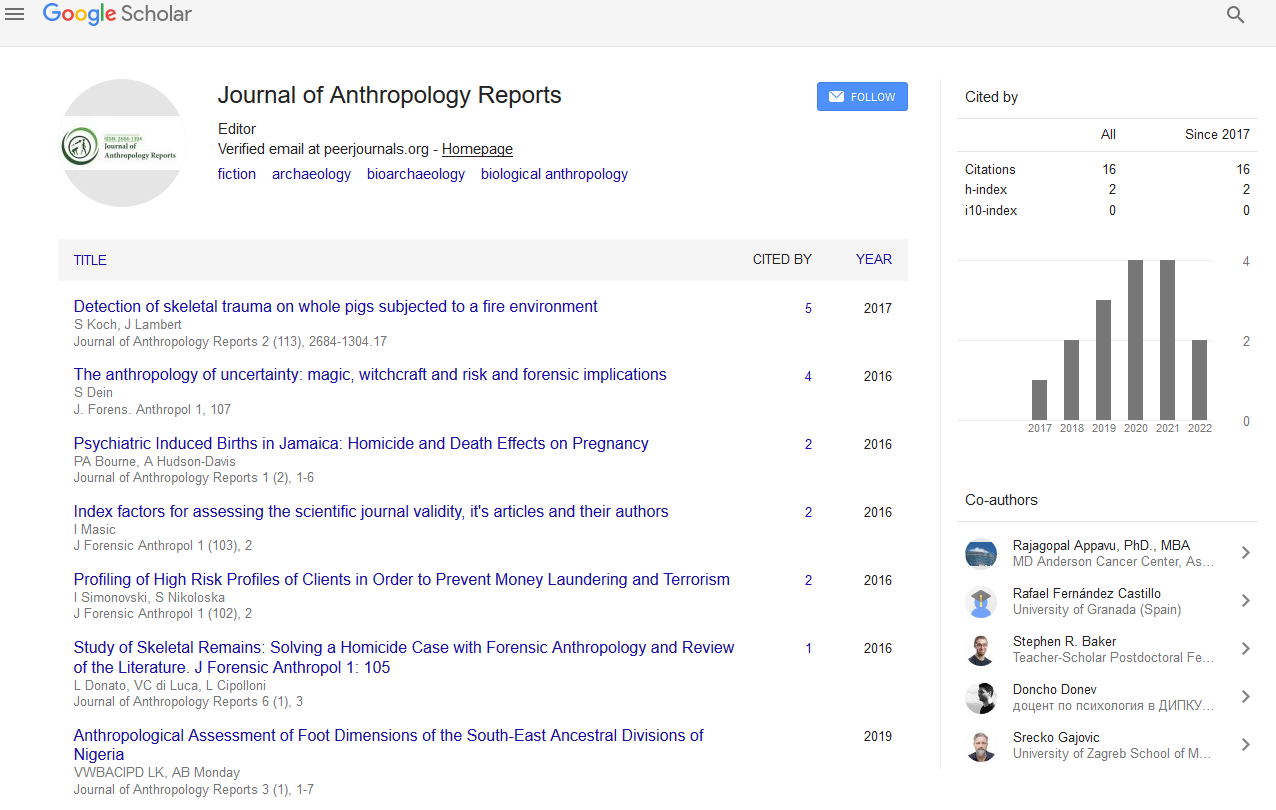Indexed In
- RefSeek
- Hamdard University
- EBSCO A-Z
Useful Links
Share This Page
Journal Flyer

Open Access Journals
- Agri and Aquaculture
- Biochemistry
- Bioinformatics & Systems Biology
- Business & Management
- Chemistry
- Clinical Sciences
- Engineering
- Food & Nutrition
- General Science
- Genetics & Molecular Biology
- Immunology & Microbiology
- Medical Sciences
- Neuroscience & Psychology
- Nursing & Health Care
- Pharmaceutical Sciences
Perspective - (2022) Volume 5, Issue 6
Theory of Evolutionary Humanism and their Analysis
Cyrus Wood*Received: 07-Nov-2022, Manuscript No. JFA-22-18980; Editor assigned: 09-Nov-2022, Pre QC No. JFA-22-18980 (PQ); Reviewed: 25-Nov-2022, QC No. JFA-22-18980; Revised: 01-Dec-2022, Manuscript No. JFA-22-18980 (R); Published: 08-Dec-2022, DOI: 10.35248/2684-1304.22.5.142
Description
Humans are the result of over 3 billion years of evolution, during which time the process has finally awakened to itself and its potential. In order for evolutionary humanism to be realized, Homo sapiens must assume responsibility for the continued evolution of all life on Earth. Although we have only existed as a conceptual being for a few very long time, Homo sapiens only became the dominating species on Earth around a million years ago. In that brief moment of astronomical terms, Homo sapiens have accomplished amazing feats. There have been a number of dominant philosophical and religious systems throughout human history, each of which brought about a new arrangement of social, political and economic affairs. Agriculture practiced seasonal resources and annual rebirth, whereas hunters relied on magic to ensure success. Then early civilization, which had cities, holy kings, written records and ministries that protected the monotheistic, universal religion, later the technological and scientific revolutions with their related thought patterns, emerged.
A humanist revolution is currently taking shape, but its ideological and social results are still being considered. The tremendous diversity of the universe must be incorporated into a unified framework that encompasses the rhythm of an allencompassing evolutionary process, though, since humanism is about being human. No matter if there is a divinity or not, individuals in society engage in religion. It is an organization designed by humans to address issues pertaining to the fate of certain men and women. Its accomplishment is a task for civilizations, nations and the entire human species. A religion will gradually lose its ability to satisfy the large number of people seeking confidence about their future if the ideological pattern it adheres to does not alter in accordance with the advancement of knowledge, social change and the progression of events. Science and religion are not fundamentally different from one another; rather, they are both aspects of an evolving humanity. It's possible that major institutions of idea and belief are as important in science as they are in religion. The reorganization of cosmological thought, which degraded the earth from its position as the center of the universe and resulted in the substitution of an earth - centered pattern of thought with a suncentered one, is the quintessential example of reorganization in science Humanity has created the hypothesis of God to better grasp what life is all about. The god hypothesis holds that there is a superhuman person or super personal being that has some control over the cosmos and its course. The most of them have become less mysterious as knowledge has increased in terms of their rational or scientific explanation, but the underlying mystery of existence, particularly the existence of mind, still exists. But it is true that a lot of phenomena do take on a mystical undertone or compulsive force, exposing us to a world outside of our everyday awareness. Such occurrences and experience call for a unique label. Huxley employs the word "divine," but he claims that this aspect of divinity is Trans natural rather than truly supernatural. It develops outside of everyday nature but goes beyond it the object of admiration and awe is how a group or person considers being divine. Ideology has a strong propensity to priorities people at the top of the hierarchy of beings. The idea that humans are wholly unique is seriously contested by modern evolutionary theory.
The theory of evolution situates humans on a spectrum of existence, challenging the notion that the characteristics that make humans, who we are, such as civilization, language, reason and so forth, are particular to us and place us at the apex of creation, different from all other life-forms. The idea that the creature from which we evolved and those who are genetically similar to us today may share these traits, albeit to differing degrees, is made possible by the theory of evolution Humans are a fantastic example of these forces, not the one and only exception to them that changed the natural world. In accepting this, evolutionary biology must also give up the idea that actual reality is better characterized as a meaningless machine that follows its programming deterministically. If humans developed from simpler species as taught by evolutionary science and if people are subject who are free, aware and able of identity, then these qualities of subjectivity and freedom must also be present in humanity's evolutionary forebears.
Citation: Wood C (2022) Theory of Evolutionary Humanism and their Analysis. J Anthropol Rep. 5:142.
Copyright: © 2022 Wood C. This is an open-access article distributed under the terms of the Creative Commons Attribution License, which permits unrestricted use, distribution, and reproduction in any medium, provided the original author and source are credited.

